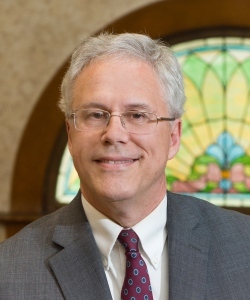Grandparents play an increasing role in the education of their grandchildren. With a private college education exceeding $50,000 per year, and grandchildren increasingly attending graduate school, many parents do not have the ability to pay for all of their children’s education.
What many grandparents do not know is that there is a tax-efficient way they can pay for the higher education of their grandchildren. It is the 529 Plan. A 529 plan is a tax-advantaged investment plan designed to encourage saving for the future higher education expenses. The plans are named after Section 529 of the Internal Revenue Code and are administered by state agencies. Grandparents can receive a state income tax deduction for contributing to a 529 Plan. In Connecticut, we have the Connecticut Higher Education Trust 529 Plan. Money contributed to the account grows tax free; when the grandchild starts attending college they can use the fund for their higher education without paying any income taxes on the withdrawals.
There are numerous misconceptions about 529 plans:
MYTH #1: A Grandchild Can Only Use a 529 Plan for College. The reality is that a 529 plan can be used for any eligible post-secondary institution ranging from vocational school to graduate school.
MYTH #2: If the grandchild does not attend college, the fund is lost. The money in a 529 Plan is never lost. If a grandchild does not go to college and the funds withdrawn, the account owner will pay taxes on the earnings and pay a 10% withdrawal penalty but there will still be funds available for the grandchild to use. Of course, the account owner can always change the beneficiary to someone else who uses the account for higher education.
MYTH #3: There is an age limit. There is no age limit on who can use the money in a 529 plan. Thus, even if a grandchild does not use the 529 Plan until graduate school, the fund will pay those expenses regardless of the grandchild’s age.
MYTH #4: Having a 529 account will disqualify the grandchild for financial aid. In the financial aid calculation, colleges only take a parent’s and the student’s assets into account. The treatment of investments in a 529 plan for financial aid purposes varies by school. Assets in a 529 Plan are typically treated as the account owner's and not the student's. Student assets are generally assessed at 20%, whereas, parental assets are generally assessed at 5.6%. Grandparents assets are not included in the financial aid calculation. Thus, if the grandchild will need financial aid, it may be better to have the grandparent remain as the account owner but designate the parent as successor owner. Even if a school counts the 529 plan for financial aid purposes, the majority of need-based financial aid is in the form of student loans. So, whatever savings accumulate for your grandchild’s college expenses may help reduce the parent’s or student’s future debt load.
MYTH #5: A grandchild can only be enrolled in one 529 plan. Just because the parent of your grandchild set up a 529 plan, it does not mean you should not set up a 529 plan for your grandchild. There’s no limit on the number of 529 accounts that can be opened for a specific beneficiary.
MYTH #6: All 529 Plan are the same. You can invest in a 529 Plan through a financial institution or through a state agency. The investments available to grow the account can vary greatly depending on where you set up the 529 Plan. Financial institutions tend to have more investment choices than state agencies. A 529 Plan provided through a financial institution may not allow you to take a state income tax deduction. The fees charged for maintenance of the account can vary greatly. Some plans impose significant annual fees averaging 1% to 1.5%. Some plans also impose significant front-end sales charges on the investments. Fees are generally lower if the investment is made directly with the state plan instead of arranged through a broker. Thus, it helps to compare 529 Plans. See www.collegesavings.org to compare plans.
MYTH #7: 529 Plans are the only way to provide for your grandchild’s education. Most financial institutions and every state advertise 529 Plans as the way to provide for a grandchild’s education. Nevertheless, grandparents have many options besides 529 plans to consider. Tuition and related expenses paid directly to the college (not reimbursed to the grandchild) are totally exempt from gift or estate taxes. Sebsequently, a grandparent may wish to simply pay the tuition costs directly instead of creating a 529 plan. U.S. Savings Bonds may also be a great way to provide for a grandchild’s education if the grandchild is a dependent of the grandparent. Interest on U.S. savings bonds which are redeemed to provide for the higher education of a dependent is excluded from taxable income. Roth IRAs offer another tax-efficient way to provide for a grandchild’s education. Roth IRAs grow free of income taxes. A grandparent can make a withdrawal from a Roth IRA to pay for a grandchild’s education at any level. Grandparents can also set up a Uniform Trusts for Minors Act account for the grandchild at any financial institution to pay the grandchild’s education expenses. Finally, a grandparent can set up a Trust for the grandchild with the grandchild’s parent as Trustee.
The cost of higher education has grown 10 times since grandparents put their own children through college. Through funding their education, grandparents can make a substantial difference in the lives of their grandchildren. Grandparents should consider 529 Plans as one of the many vehicles to fund a grandchild’s higher education.

